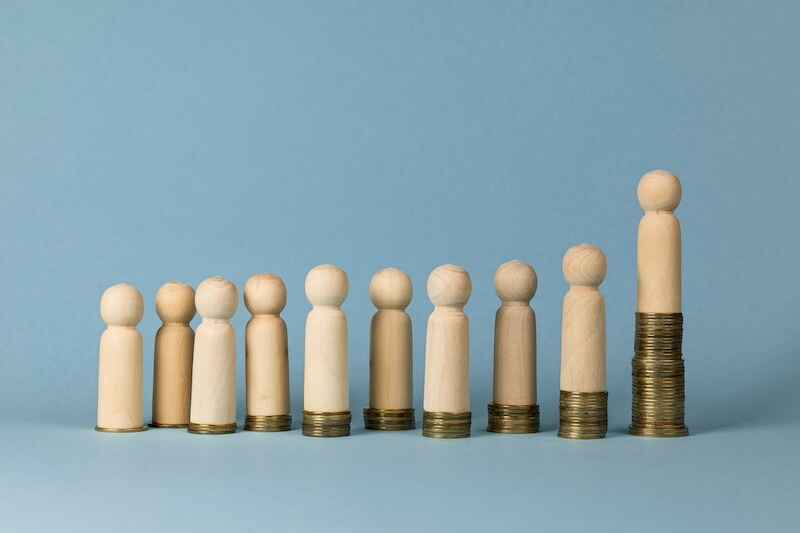Donald Trump just unleashed “Document 20”, which could send the Dow soaring to 75,000.
One top analyst who was one of the few investors courageous enough to go public and predict Trump’s first “Stockwave” back in 2016 is revealing details on which stocks might surge during Trump’s second Stockwave. Smart Americans could become new millionaires if they are prepared…
Just as 7.6 million did during the first Stockwave. Find details here<<
– Nicole Labra, Senior Managing Editor
By virtually every objective measure, Americans today are better off economically than ever before.
Our standard of living has never been higher. Our expected life spans have never been longer.
We have never had larger homes, safer cars, more labor-saving devices, faster communications, more effective medicines, easier long-distance travel, better technology, more modern conveniences or greater entertainment choices.
And, thanks to soaring asset values, U.S. household net worth is at an all-time high.
We should count our blessings.
Yet many in academia and the media don’t want us to. They would prefer that we adopt their worldview – and feel angry, bitter, and demoralized.
And they have a near-perfect issue to stoke our sense of grievance: economic inequality.
Journalists and academics want you to overcome your natural sense of contentment and gratitude and, instead, compare yourself to the richest fraction of one percent of the population.
That way you can still imagine that life has handed you a raw deal. The problem is… for most of us, it hasn’t.
It’s true that wages have only just caught up with the higher prices of the past few years. Yet our purchasing power is still expanding.
For example, spending by households on most of modern life’s “basics” – food, clothing, and shelter – fell from 53% of disposable income in 1950 to 44% in 1970 to 32% today.
And these figures actually understate the matter.
Forty years ago, lounge chairs didn’t give massages. A TV was at most 25 inches and had bad reception and terrible resolution. Cars didn’t have leather interiors with walnut trim, rack and pinion steering, high-powered stereos, front- and side-impact airbags or a GPS. Nor did they easily last for more than 100,000 miles.
According to the Census Bureau, the median square footage of newly built single-family homes hit 2,286 square feet last year. That’s more than 800 square feet larger than the median home built in 1992.
We in the West today live longer, healthier, safer, richer, freer lives than any people in the history of the planet.
Yet instead of feeling grateful, many look at those in the top 100th of 1% and feel bitterness and envy instead.
Bill Gates has a 66,000 square foot mansion that overlooks Lake Washington. Warren Buffett zips around the country in his private jet, a Bombardier Challenger 6000. Oracle founder Larry Ellison has a 453-foot yacht with 82 rooms, a private cinema, and an extensive wine cellar.
Yet these facts don’t make me want to boo-hoo about the terrible unfairness of it all.
When Donald Trump goes out to eat, does he get a better cut of steak than you do? Does Oprah Winfrey have a better iPhone? Does Elon Musk have a faster internet connection?
Perhaps we need a bit of perspective.
In the past, most men earned a living doing hard, backbreaking work in farming, forestry, mining or construction. We blazed trails, forded rivers, crossed mountain ranges, and built our own homes and barns.
Nobody does those things anymore. Our lives are sedentary. Health experts have to remind us to walk, swim, stretch, and “exercise our cores.” Nobody told your grandparents to exercise their cores. They were too busy trying to survive.
Maybe it takes a humorist to wake us up.
In The Wall Street Journal, Dave Barry writes, “My mom, like my Dad, and millions of other members of the Greatest Generation, had to contend with real adversity: the Great Depression, the Dust Bowl, hunger, poverty, disease, World War II, extremely low-fi 78 rpm records and telephones that – incredible as it sounds today –could not even shoot video.”
It’s true that the richest have gotten richer faster than the rest of us. But the tide is rising for us all. Since 1980, the inflation-adjusted average daily income of Americans has doubled. In my lifetime, it has more than tripled.
Even our poor are rich by historical standards. Most Americans living under the poverty line today live in larger accommodations than the average European.
Historically, being poor meant having to struggle to get enough calories to survive. Today we have the opposite problem. Obesity creates a health care crisis among the poor.
The average person living below the poverty line in the U.S. today has a telephone, a TV set, indoor plumbing, central heat, and an automobile.
And due to the easy accessibility of free information on the internet, they can take open courses at MIT or video-chat with family members across the country or around the world.
A hundred and fifty years ago, the richest robber barons couldn’t have dreamed of such wealth.
Your living standards are superior to 99.9% of all the human beings who have ever walked this planet.
Yet despite your incredibly good fortune, you can still feel unhappy, even miserable… if you listen to the nattering nabobs of negativism.
Don’t get me wrong. Poverty and social mobility are real problems. We should do what we can to alleviate the former and increase the latter.
But “economic inequality” – the fact that Mark Zuckerberg and Jeff Bezos have a lot more than you and me – that’s the kind of problem that people create in their heads.
Many are upset about this issue because they believe we live in a zero-sum world, where the only way one person has more is if someone else has less.
Yet that’s not how the economy works, as I’ll explain in my next column.
